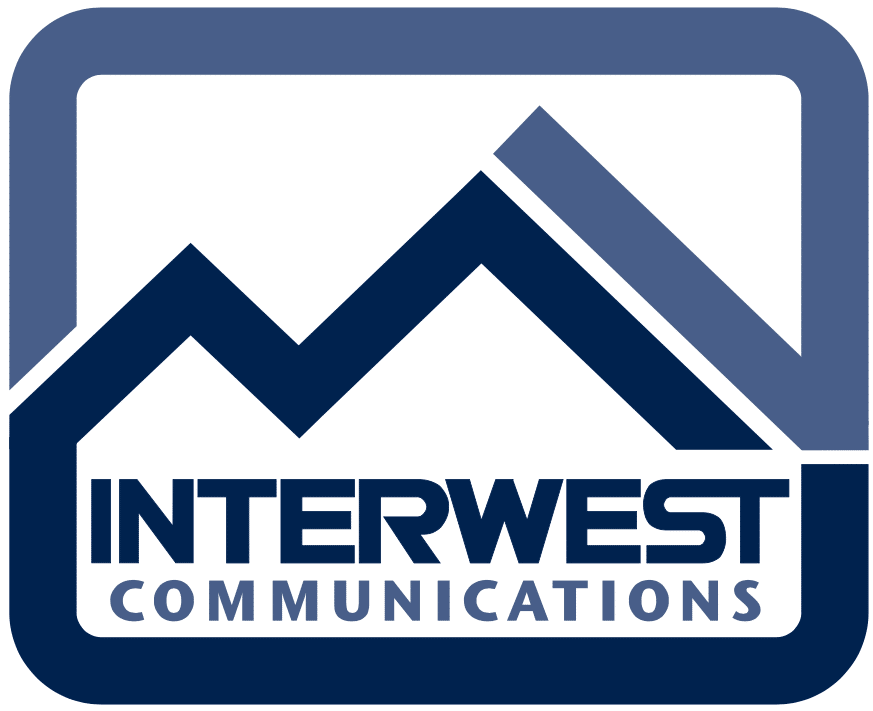- May 22, 2025
- Posted by: Interwest Communications Team
- Categories: News, Uncategorized

Originally posted on January 15, 2024 @ 2:11 pm

How Secure is OneDrive for Business?
In today’s digital age, the security of our sensitive data is an ever-growing concern. With the increasing popularity of cloud storage services, such as OneDrive for Business, it is vital to understand the level of security they provide. In this article, we will dive deep into the world of OneDrive for Business security, analyzing its features and comparing it with other cloud services. We will also explore ways to enhance the security of OneDrive for Business and discuss the future of its security offerings. So let’s begin by understanding what OneDrive for Business is all about.
Understanding OneDrive for Business
OneDrive for Business is a cloud-based storage service offered by Microsoft, designed specifically for businesses and organizations. It allows users to store, sync, and share their files securely, providing them with easy access to their data from any device, anywhere in the world. But what sets OneDrive for Business apart from other cloud storage solutions?
What is OneDrive for Business?
OneDrive for Business is an integral part of Microsoft’s Office 365 suite, catered to meet the needs of enterprise users. It offers a vast storage capacity, ensuring that businesses can securely store and manage their files without worrying about limitations. OneDrive for Business seamlessly integrates with other Microsoft applications such as Word, Excel, and PowerPoint, enabling users to collaborate on documents in real-time.
But what makes OneDrive for Business truly stand out is its commitment to security and privacy. Microsoft understands the importance of protecting sensitive business data, and they have implemented a range of robust security features to ensure the confidentiality, integrity, and availability of your files.
Key Features of OneDrive for Business
When it comes to security, OneDrive for Business provides a comprehensive set of features to protect the privacy and integrity of your data. Let’s take a closer look at some of its key features:
- Encryption: OneDrive for Business employs encryption methods to protect your data both in transit and at rest. Your files are encrypted while being transmitted over the network and also when stored on Microsoft’s servers. This ensures that even if someone intercepts your data, they won’t be able to access its contents without the encryption key.
- Access Controls: OneDrive for Business offers robust access controls, allowing you to dictate who can view, edit, or share your files. You can set permissions and share files with specific individuals or groups, reducing the risk of unauthorized access. Additionally, you can set expiration dates for shared links, ensuring that access to sensitive information is limited to a specific timeframe.
- Version History: OneDrive for Business keeps a record of all changes made to your files, allowing you to restore previous versions if needed. This feature ensures that you can recover from accidental changes or malicious acts. It also provides an audit trail, enabling you to track who made the changes and when.
- Two-Factor Authentication: With the rising concern of password breaches, OneDrive for Business provides an extra layer of security through two-factor authentication. This means that in addition to your password, you need to provide a second form of verification, such as a fingerprint or a code sent to your mobile device, to access your account. This significantly reduces the risk of unauthorized access, even if your password is compromised.
With its robust security features, seamless integration with Microsoft applications, and vast storage capacity, OneDrive for Business is a reliable and secure cloud storage solution for businesses and organizations. Whether you need to collaborate on documents, share files with clients, or ensure the privacy of sensitive information, OneDrive for Business has you covered.
Analyzing OneDrive for Business Security
OneDrive for Business takes security seriously and incorporates various measures to ensure the safety of your data. Let’s delve into some of the prominent security measures it employs.
When it comes to protecting your data, OneDrive for Business employs a multi-layered security approach. It goes beyond basic security measures and utilizes industry-standard protocols to safeguard your files.
Security Measures in OneDrive for Business
OneDrive for Business understands the importance of physical security. That’s why Microsoft’s data centers that host OneDrive for Business are equipped with state-of-the-art physical security measures. These measures include access controls, surveillance systems, and strict monitoring. With these precautions in place, you can have peace of mind knowing that your data is physically protected.
Data redundancy is another key aspect of OneDrive for Business security. To ensure the availability of your data, OneDrive for Business creates multiple copies of your files in geographically dispersed data centers. This redundancy safeguards your data against hardware failures or natural disasters. So even if one data center experiences an issue, your files are still safe and accessible.
Threat detection is a crucial component of any robust security system, and OneDrive for Business doesn’t disappoint. It employs advanced threat detection technologies to identify and protect against possible security breaches. Utilizing machine learning algorithms, OneDrive for Business can detect unusual activities and potential threats, allowing for proactive security measures to be taken.
Compliance certifications play a vital role in ensuring the security and privacy of your data. OneDrive for Business complies with several industry standards and regulations, such as ISO 27001 and GDPR. These certifications provide assurance that your data is handled with the utmost care and in compliance with data protection laws. With OneDrive for Business, you can trust that your data is in good hands.
Data Protection and Privacy in OneDrive
Privacy is a top priority for OneDrive for Business. Microsoft understands the importance of keeping your data private and ensures that it is not accessed or shared without your consent.
OneDrive for Business provides granular privacy controls, allowing you to choose who can access your files and folders. With these controls, you have the power to determine who can view and edit your files, giving you complete control over your data. Additionally, OneDrive for Business allows you to set expiration dates for shared links, further reinforcing your control over your data.
Depending on your organization’s requirements, OneDrive for Business also allows you to choose the data residency location. This means that you can ensure your data remains within a specific geographic region, providing an extra layer of protection and compliance with local regulations.
For organizations with legal and regulatory obligations, OneDrive for Business provides compliance tools to facilitate data retention, e-discovery, and legal hold processes. These tools streamline the management of your data and help you meet your legal requirements without any hassle.
With OneDrive for Business, you can have confidence in the security and privacy of your data. Its comprehensive security measures and privacy features ensure that your files are protected from various threats and that you have full control over who can access your data. Choose OneDrive for Business for a secure and reliable cloud storage solution.
Comparing OneDrive Security with Other Cloud Services
When it comes to choosing a cloud storage service, security is a top concern for organizations. OneDrive for Business is known for its robust security features, but it’s important to compare it with other popular cloud services to make an informed decision. Let’s dive deeper into how OneDrive security stacks up against other cloud services.
OneDrive vs. Google Drive: Security Aspects
Both OneDrive for Business and Google Drive provide reliable cloud storage solutions, but they employ different security approaches. OneDrive for Business offers more than just storage; it provides robust administrative controls that allow organizations to manage user access, permissions, and sharing settings with ease. Additionally, OneDrive integrates seamlessly with Microsoft’s productivity suite, ensuring that files are protected throughout the entire workflow. Moreover, OneDrive for Business boasts a wide range of compliance certifications, giving organizations peace of mind when it comes to data protection and regulatory requirements.
On the other hand, Google Drive excels in collaboration features and real-time editing capabilities. Its integration with Google’s ecosystem allows for seamless collaboration among team members, making it an ideal choice for organizations that prioritize teamwork and productivity. While Google Drive also offers security features such as encryption and two-factor authentication, it may not provide the same level of administrative controls and compliance certifications as OneDrive for Business. Therefore, the choice between the two depends on the specific needs and preferences of the organization.
OneDrive vs. Dropbox: A Security Perspective
Dropbox has long been a popular choice for cloud storage, and it, too, emphasizes security. However, when it comes to enterprise-level security features, OneDrive for Business takes the lead. OneDrive offers advanced access controls, allowing organizations to define granular permissions and restrictions for each user. This level of control ensures that sensitive data is only accessible to authorized individuals, reducing the risk of data breaches.
In addition to access controls, OneDrive for Business also provides data loss prevention measures. Organizations can set up policies to prevent accidental or intentional data leaks, ensuring that confidential information remains protected. Furthermore, OneDrive for Business boasts a wide range of compliance certifications, including ISO 27001, HIPAA, and GDPR, making it a suitable choice for organizations that operate in highly regulated industries.
On the other hand, Dropbox is known for its user-friendliness and ease of use. Its intuitive interface and simple file-sharing capabilities make it a popular choice among individuals and small teams. Dropbox also offers collaboration features, allowing multiple users to work on the same document simultaneously. However, when it comes to enterprise-level security and compliance, OneDrive for Business provides a more comprehensive solution.
Ultimately, the choice between OneDrive for Business, Google Drive, and Dropbox depends on the specific needs and priorities of the organization. While OneDrive for Business offers robust security features, Google Drive excels in collaboration, and Dropbox focuses on user-friendliness. Organizations should carefully evaluate their requirements and consider factors such as administrative controls, compliance certifications, collaboration features, and ease of use before making a decision.
Enhancing OneDrive for Business Security
While OneDrive for Business offers robust security features out of the box, it is essential to adopt best practices and leverage additional tools to enhance its security. Let’s explore some ways to maximize the security of OneDrive for Business.
OneDrive for Business is a powerful cloud storage solution provided by Microsoft that allows organizations to store, share, and collaborate on files securely. With the increasing importance of data security, it is crucial to follow best practices and utilize additional security tools to protect sensitive information stored in OneDrive for Business.
Best Practices for Secure Use of OneDrive
Follow these best practices to ensure a secure experience with OneDrive for Business:
- Strong Passwords: Choose unique and complex passwords for your OneDrive for Business account. Consider using a password manager to store and generate strong passwords. A strong password should include a combination of uppercase and lowercase letters, numbers, and special characters.
- Enable Two-Factor Authentication: Enable two-factor authentication to add an additional layer of security to your account. Two-factor authentication requires users to provide an additional verification method, such as a code sent to their mobile device, in addition to their password.
- Regularly Review and Update Permissions: Regularly review the permissions granted to individual users or groups to ensure that only the necessary individuals have access to your files. Remove any unnecessary permissions and regularly update them as roles and responsibilities change within your organization.
- Enable File Encryption: Consider enabling file encryption for sensitive files to provide an extra layer of protection even if your account gets compromised. File encryption ensures that only authorized users can access and decrypt the files, adding an additional barrier against unauthorized access.
By following these best practices, you can significantly enhance the security of your OneDrive for Business account and protect your valuable data from unauthorized access or data breaches.
Additional Security Tools for OneDrive
In addition to the built-in security features of OneDrive for Business, Microsoft offers additional security tools to enhance the protection of your data. These tools include:
- Microsoft Cloud App Security: Microsoft Cloud App Security provides advanced threat detection, data loss prevention, and cloud access security broker (CASB) capabilities, giving you enhanced control over the security of your OneDrive for Business files. With this tool, you can monitor and manage user activities, detect and respond to potential threats, and enforce data loss prevention policies.
- Windows Information Protection: Windows Information Protection (WIP) allows you to classify and protect your files based on organizational policies. It helps prevent accidental data leakage and provides encryption for sensitive information. With WIP, you can define rules to automatically classify files and apply protection, ensuring that only authorized users can access and modify them.
These additional security tools provide organizations with advanced capabilities to secure their OneDrive for Business environment. By leveraging these tools, you can further strengthen the security posture of your organization and protect your sensitive data from various threats.
The Future of OneDrive for Business Security
As technology advances, so does the need for stronger security measures. Microsoft continuously invests in research and development to enhance the security of OneDrive for Business. Let’s take a glimpse into the future and explore upcoming security features.
OneDrive for Business is a cloud-based storage platform that offers businesses and organizations a secure and reliable way to store, access, and share their files. With the increasing importance of data security, Microsoft is committed to providing users with robust security features to protect their sensitive information.
Upcoming Security Features in OneDrive
Microsoft plans to introduce several exciting security features to further strengthen the security of OneDrive for Business. These features are designed to address the evolving threat landscape and provide users with enhanced control over their data. Some of the upcoming features include:
- Sensitive Data Detection: OneDrive for Business will incorporate machine learning algorithms to automatically detect and protect sensitive data, helping you comply with data protection regulations. This feature will analyze the content of your files and identify any personally identifiable information (PII), financial data, or other sensitive information. It will then apply appropriate security measures, such as encryption or access restrictions, to safeguard your data.
- External Sharing Controls: Microsoft aims to enhance external sharing controls, allowing you to share files securely with external parties while maintaining control over your data. With this feature, you will have more granular control over who can access your shared files and what they can do with them. You can set permissions, revoke access at any time, and even track the activities of external users to ensure the security of your data.
The Role of AI in Enhancing OneDrive Security
Artificial Intelligence (AI) plays a significant role in advancing the security capabilities of OneDrive for Business. Microsoft is leveraging AI technologies to detect and respond to threats in real-time, identify suspicious activities, and provide users with actionable insights to strengthen their security protocols.
By analyzing patterns and behaviors, AI algorithms can identify potential security risks and take proactive measures to mitigate them. For example, if an AI system detects an unusual login attempt from an unfamiliar location, it can prompt additional authentication steps or even block the access altogether. This helps prevent unauthorized access and protects your data from being compromised.
Furthermore, AI can assist in identifying and classifying different types of malware, such as viruses, ransomware, and phishing attempts. By continuously analyzing new threats and learning from past experiences, AI systems can provide real-time protection against emerging threats, ensuring the integrity of your files stored in OneDrive for Business.
In conclusion, OneDrive for Business offers robust security features, ensuring the confidentiality, integrity, and availability of your data. By understanding its key features, comparing it with other cloud services, adopting best practices, and leveraging additional security tools, you can enhance the security of your OneDrive for Business account.
With Microsoft’s continuous investment in research and development, the future looks promising, with upcoming security features and the integration of AI technology. These advancements will further strengthen the security of OneDrive for Business, providing users with peace of mind and confidence in the protection of their valuable data. So, rest assured, OneDrive for Business remains a secure choice for businesses and organizations alike.
